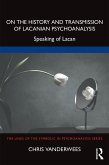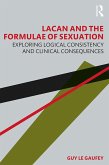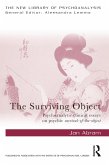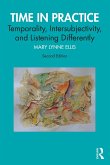Dieser Download kann aus rechtlichen Gründen nur mit Rechnungsadresse in A, B, BG, CY, CZ, D, DK, EW, E, FIN, F, GR, HR, H, IRL, I, LT, L, LR, M, NL, PL, P, R, S, SLO, SK ausgeliefert werden.
"Ian Parker's wide-ranging discussion of psychoanalysis in international contexts is dazzling in approach, tonality, and themes and presents readers with a history of the problems of response and change. Parker gives us a new approach to the psychoanalytic field through his longstanding development and this is a major contribution." -Professor Deborah Britzman, FRSC, York University, Canada
"From his student years, Ian Parker began searching for alternatives to the shortcomings of mainstream psychology, and this book is the riveting story of how he grappled with the complex diversities of psychoanalytic thought, eventually becoming a Lacanian analyst himself. Parker's erudite and pellucid prose makes this essential reading for anyone pondering the persisting potential and possible pitfalls of deploying psychoanalytic narratives, especially in political contexts, as he takes us on rollicking journeys through Brazil, Korea, Russia and Japan, while debating with queer theory, Judaism and Islam along the way." --Professor Lynne Segal, Birkbeck, author, Radical Happiness: Moments of Collective Joy









